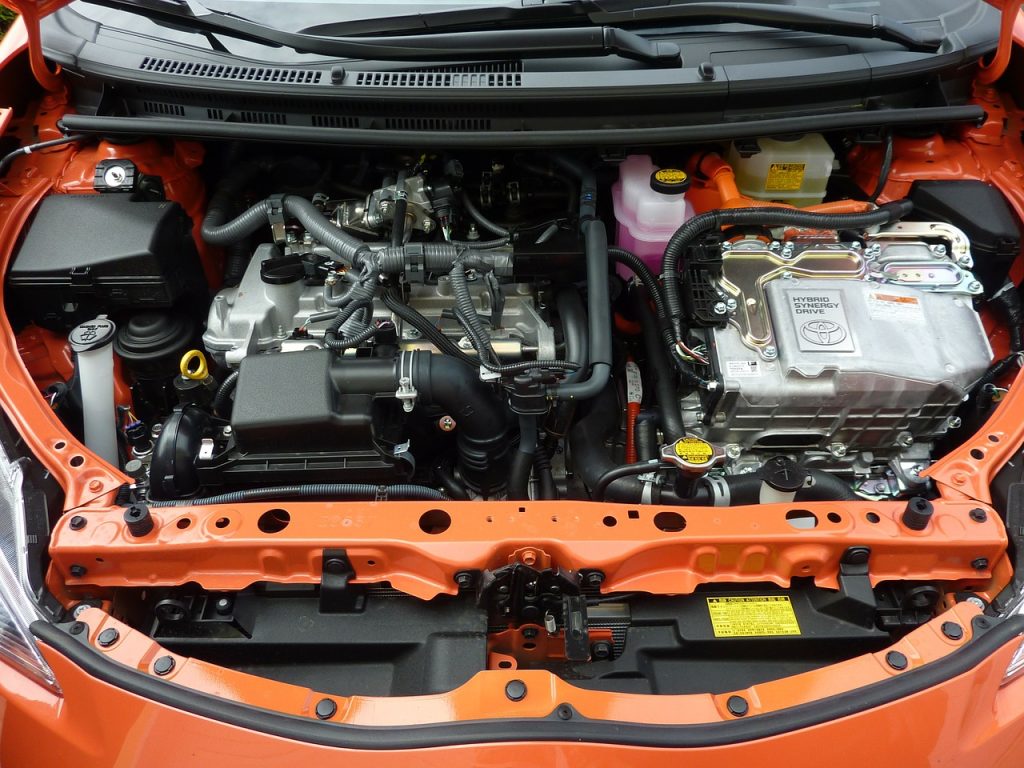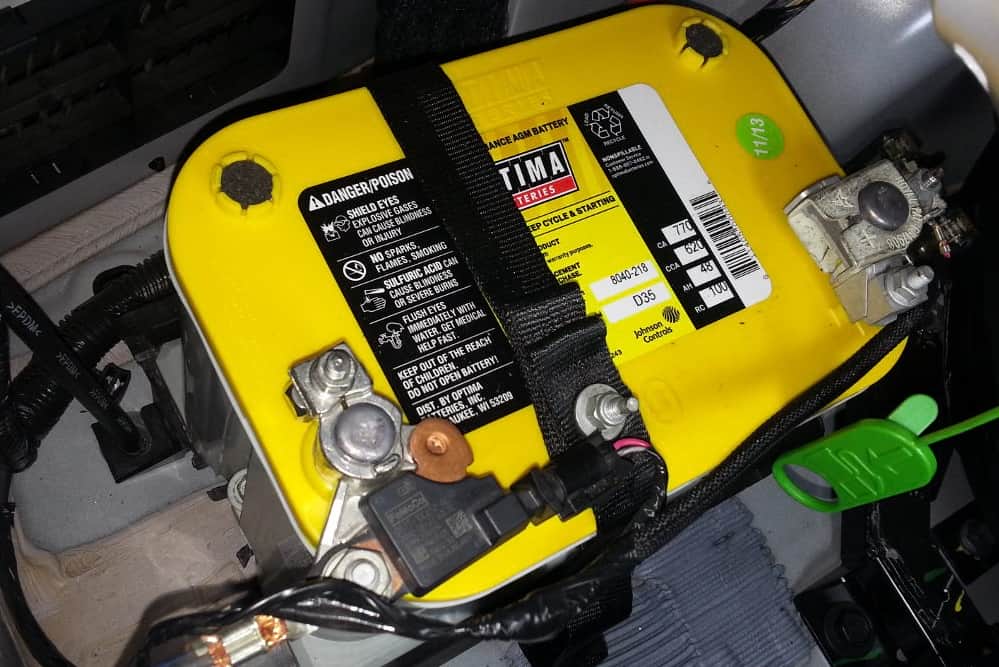Understanding AGM Batteries
AGM batteries are a type of lead-acid battery where the electrolyte is absorbed in a mat of glass fibers. This design makes them spill-proof and allows them to operate in any orientation. This feature is especially advantageous in environments where the battery may be subject to movement or angles that would compromise a traditional liquid-electrolyte battery. They are commonly used in vehicles, renewable energy systems, and backup power applications, offering reliable performance across a variety of settings.
Another notable feature of AGM batteries is their ability to deliver high currents on demand, making them well-suited for applications requiring significant power bursts. This includes starting engines or supporting systems with high power demands. Their sealed design not only ensures minimal maintenance but also enhances safety as there is no risk of acid spillage. These characteristics make them a versatile choice for users who prioritize durability and ease of use.

Advantages of AGM Batteries
- Cost-Effective: AGM batteries are generally more affordable than lithium batteries. They offer a good balance between performance and cost, making them a popular choice for many applications. This affordability makes them accessible for budget-conscious consumers or large-scale installations where multiple units are required.
- Maintenance-Free: Unlike traditional lead-acid batteries, AGM batteries are sealed and do not require regular maintenance, such as adding water. This not only reduces the hassle for users but also lowers the risk of maintenance-related errors that could compromise battery longevity.
- Durability: AGM batteries are known for their robust construction, which makes them resistant to vibration and shock. This makes them ideal for use in vehicles and other mobile applications, where durability is key. The rugged design ensures consistent performance even in harsh conditions, providing peace of mind for users in demanding environments.
- Temperature Tolerance: They perform well in a wide range of temperatures, which is crucial for outdoor or vehicle usage. Whether it’s the heat of a summer day or the chill of winter, AGM batteries can maintain their performance, making them reliable year-round.
Disadvantages of AGM Batteries
- Weight: AGM batteries are heavier than lithium batteries, which can be a drawback if weight is a critical factor for your application. This is particularly relevant in mobile or portable applications where every pound counts.
- Limited Lifespan: While they are durable, AGM batteries have a shorter lifespan compared to lithium batteries, especially under deep discharge conditions. This means they may need to be replaced more frequently, potentially increasing long-term costs.
- Lower Energy Density: They store less energy per unit of weight compared to lithium batteries, making them less efficient in terms of energy storage. This can be a limiting factor for applications where space and weight efficiency are paramount.
Understanding Lithium Batteries
Lithium batteries, commonly referred to as lithium-ion batteries, are known for their high energy density and lightweight characteristics. They are widely used in consumer electronics, electric vehicles, and renewable energy systems. Their technological advancements have made them a cornerstone of modern energy storage solutions, supporting innovations across multiple industries.
Lithium batteries are prized for their ability to deliver consistent power over extended periods, thanks to their higher energy density. This makes them particularly well-suited for applications where long battery life and minimal downtime are critical. Additionally, their lightweight nature allows for greater flexibility in design and application, a significant advantage in industries such as automotive and portable electronics.
Advantages of Lithium Batteries
- High Energy Density: Lithium batteries can store a significant amount of energy in a relatively small and lightweight package, making them ideal for portable applications. This property is particularly beneficial in devices where space is a premium, like smartphones and laptops.
- Long Lifespan: They typically have a longer lifespan compared to AGM batteries, with the ability to withstand more charge and discharge cycles. This longevity can lead to cost savings over time, despite the higher initial investment.
- Fast Charging: Lithium batteries can be charged more quickly than AGM batteries, which is beneficial for applications where downtime needs to be minimized. This rapid recharge capability is essential in fast-paced environments where time equals money.
- Efficiency: They have a higher round-trip efficiency, meaning more of the energy put into the battery is available for use. This efficiency translates into better performance and less energy waste, contributing to overall cost-effectiveness.
Disadvantages of Lithium Batteries
- Cost: Lithium batteries are generally more expensive upfront than AGM batteries, which can be a barrier for some users. The higher initial outlay can deter those with limited budgets or those requiring multiple units.
- Temperature Sensitivity: They can be more sensitive to extreme temperatures, which might affect their performance and lifespan. Proper management systems are often required to maintain optimal operating conditions.
- Safety Concerns: While rare, lithium batteries have been known to catch fire or explode if damaged or improperly handled. This necessitates careful handling and robust safety measures to mitigate risks.
AGM vs Lithium: Choosing the Right Battery
The decision between AGM and lithium batteries depends on your specific needs and constraints. Here are some factors to consider, each influenced by unique application demands and operational environments.
Application
- For Stationary Use: If the battery is primarily for stationary use, like in a backup power system or renewable energy application, the choice may come down to budget and energy needs. AGM batteries might be sufficient if cost is a primary concern, while lithium batteries would be better for high efficiency and long-term savings. Consider the frequency of power outages and the importance of energy efficiency in your decision-making process.
- For Mobile Use: In mobile applications like RVs, boats, or electric vehicles, the weight and energy efficiency of lithium batteries can provide a significant advantage. The lightweight nature of lithium batteries can enhance vehicle performance and fuel efficiency, while their rapid recharge capabilities ensure minimal downtime during travel or use.
Budget
- Initial Investment: If you are looking to minimize upfront costs, AGM batteries are the more affordable option. This can be advantageous for short-term projects or situations where immediate cost savings are prioritized over long-term efficiency.
- Long-Term Cost: While the initial investment is higher, lithium batteries can be more cost-effective over time due to their longer lifespan and lower maintenance requirements. The reduced need for replacements and maintenance can offset the initial expenditure, making them a smart choice for long-term applications.
Environmental Conditions
- Temperature Extremes: If the battery will be exposed to extreme temperatures, AGM batteries may perform more reliably. Their resilience to temperature fluctuations ensures consistent performance without the need for additional climate control measures.
- Space and Weight Constraints: Lithium batteries are preferable if space and weight are limited. Their compact size and light weight enable greater flexibility in design and application, particularly in environments where every inch and pound matter.
Conclusion
Choosing between AGM and lithium batteries involves weighing the pros and cons of each based on your specific application and needs. AGM batteries offer cost-effectiveness and durability, making them suitable for many traditional applications. Their robust construction and maintenance-free design make them a reliable choice for those prioritizing upfront affordability and ease of use.
In contrast, lithium batteries provide greater efficiency, a longer lifespan, and are ideal for modern, high-demand applications. Their high energy density and rapid charge capabilities cater to industries where performance and longevity are paramount. By considering factors such as application, budget, and environmental conditions, you can make an informed decision that meets your energy storage needs effectively. Balancing these considerations will ensure that you select a battery solution that aligns with your operational goals and constraints, maximizing both performance and value.








